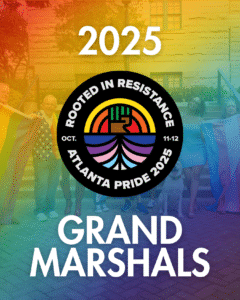
Atlanta Pride Announces 2025 Grand Marshals
Atlanta Pride is proud to announce the 2025 slate of Grand Marshals, an inclusive group of individuals and organizations whose work exemplifies this year’s theme, “Rooted in Resistance.”
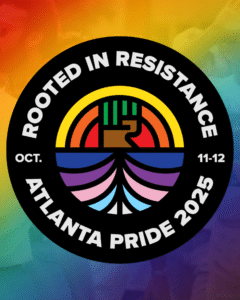
2025 Theme Announced: Rooted In Resistance
“Rooted in Resistance” honors the rich history of the LGBTQ+ movement, acknowledging the foundational acts of defiance and courage that have paved the way for current advancements.
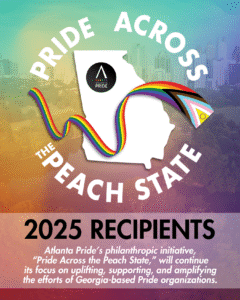
2025 Grant Recipients Announced
Atlanta Pride Announces 2025 “Pride Across the Peach State” Grant Recipients!
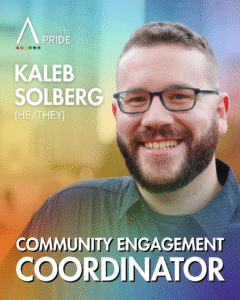
Meet Kaleb Solberg, Community Engagement Coordinator!
Atlanta Pride welcomes Kaleb Solberg as the new Community Engagement Coordinator! Learn more about Kaleb.
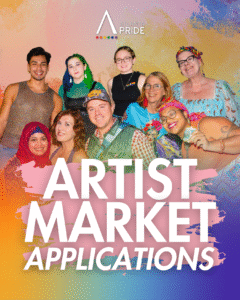
Artist Market Applications Open
Calling all creators! Applications for the 2025 Atlanta Pride Artist Market are officially open
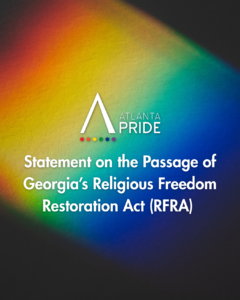
Atlanta Pride Urges Unity & Action Following Passage of Harmful RFRA Legislation
ATLANTA (APRIL 9, 2025) — Atlanta Pride, the largest free Pride festival in the United States, expresses deep disappointment and concern over the passage of Georgia’s Religious Freedom Restoration Act (RFRA) …